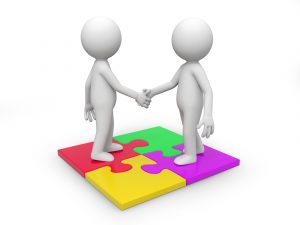 Having an Acquired Brain Injury (ABI) with subsequent changes to the ability to communicate can be very frightening, isolating and confusing for the person. Because of cognitive and communication impairments, the person may struggle to understand what has happened to them and why their life has changed.
Having an Acquired Brain Injury (ABI) with subsequent changes to the ability to communicate can be very frightening, isolating and confusing for the person. Because of cognitive and communication impairments, the person may struggle to understand what has happened to them and why their life has changed.
Following ABI, it is important that the person is provided with planned and supported opportunities for communication even though this can be difficult and time consuming, presenting challenges for family, friends, staff and/or carers: however, it is a lot more challenging for the person with brain injury.
Following brain injury, particularly in busy care settings, the person may find that they have reduced opportunities for communication. This coincides with the time when the person’s impairments result in an increased need for regular communication. For the person with communication impairments, the most unhelpful thing that can happen is that others avoid communicating with them because of the complexity of their impairments. The person is likely to need extra time for communication in order to support understanding of their situation, to obtain reassurance, decrease anxiety and to benefit from social opportunities.
The following guidelines may be helpful in supporting the person:
- Spending time with the person is important and reassuring. It is especially important if they are struggling to communicate.
- Always maintain a reassuring tone of voice and body language (e.g. maintaining a calm demeanour and a relaxed posture).
- Be patient and do not get frustrated with the person. If they could communicate in a more effective manner, they would.
- Try to help the person to understand what has happened, where they are and any other relevant, helpful and reassuring information:
- Use appropriate language which they are most likely to understand.
- Support understanding of communication by using gesture.
- Write information down and/or use helpful picture material.
- A programme of orientation may support understanding if the person has memory impairments.
- Before initiating a care activity (e.g. personal care, a medical intervention), explain simply and clearly what you are going to do before you do it. Showing the person relevant items or using gesture can help them understand. Use of pictured or written material may also be helpful.
- When interacting with the person, give them extra time to take on board what is happening, to interpret what is said and to respond. They may have significant processing impairments or become overwhelmed if they feel unable to cope with the demands placed upon them. Do not rush the person, even though the ward/care environment may be busy.
- It is important that the person is given opportunities to communicate outwith care or medical procedures. Social interaction becomes even more important following brain injury. The opportunities for this are often significantly reduced, just when the person needs more time and reassurance.
- Just sitting with the person can be helpful.
- Activities which do not rely on language, but nonetheless provide opportunities for interaction are invaluable. Choose activities most suitable for the person’s interests, ability and age. Helpful shared activities could include:
- Going for a walk.
- Playing games (e.g. football, pool, dominoes, cards, Connect 4).
- Looking through photos or a magazine.
- Making or sharing a cup of tea and a biscuit (if not dysphagic).
- Cooking/baking activities.
- Watching sport.
- Watching DVDs with visually based comedy (e.g. Mr Bean) or funny ‘You Tube’ clips.
- Computer games, games on a tablet device.
- Gardening/potting or caring for plants.
- Helping with simple chores (e.g. washing up, cleaning cupboard, folding sheets, pairing socks).
Please note that the person with significant communication and cognitive impairments may struggle when they interact with other people who have similar problems. The person may find it stressful, distressing and confusing rather than rewarding. In addition, if sharing an environment with someone who displays challenging behaviour, the person may become distressed and anxious.
It is often easier and less stressful for the person with brain injury and communication/cognitive impairment to interact with those who are not impaired, have some understanding of the situation and are more aware of how to support communication. It is important not to assume that people who have ‘something in common’ (i.e. a brain injury) will be able to get along and benefit from each other’s company, though for some this can be extremely helpful and rewarding.
For more specific information on how to support communication, please see ‘How to Help’ in the sections relating to specific types of communication problems.